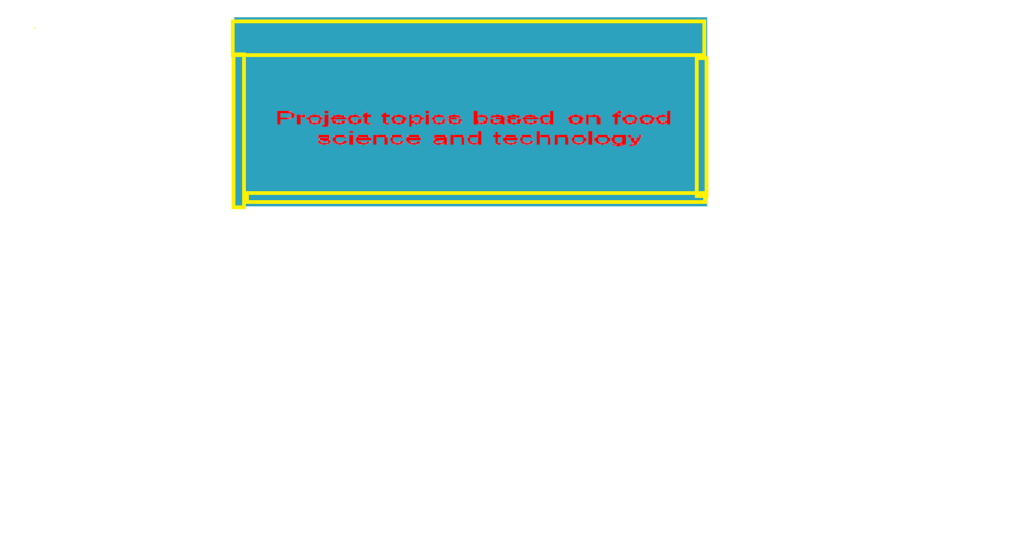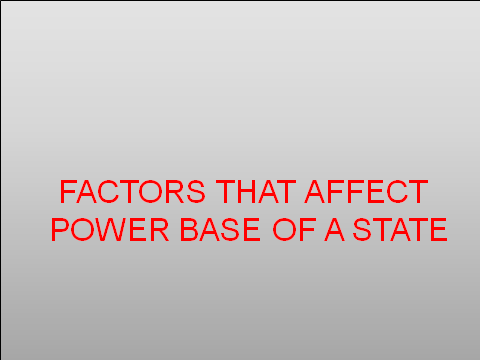Homeowner’s Insurance: Protecting Your Property in America
Introduction
Owning a home is a significant milestone and a substantial financial investment for many Americans. Your home is not only a place of comfort and security for you and your family but also a valuable asset that needs protection. Homeowner’s insurance plays a crucial role in safeguarding your property from unexpected events and providing you with peace of mind. In this comprehensive guide, we will explore the importance of homeowner’s insurance, the coverage it provides, and why every homeowner in America should consider this essential form of protection.
1: Understanding Homeowner’s Insurance Coverage
Owning a home is a significant achievement, but it also comes with responsibilities, including protecting your property from unforeseen events. Homeowner’s insurance is a crucial aspect of homeownership that provides financial security and peace of mind. Understanding the different types of coverage offered by homeowner’s insurance is essential in ensuring that you have the protection you need. Let’s delve into the various aspects of homeowner’s insurance coverage:
Dwelling Coverage
Dwelling coverage is the cornerstone of homeowner’s insurance. This type of coverage protects the physical structure of your home, including the walls, roof, floors, and foundation. It also extends to built-in structures such as plumbing, electrical systems, and HVAC units. In the event of covered perils like fire, windstorm, or vandalism causing damage to your home, dwelling coverage helps you repair or rebuild your house, providing you with financial assistance during challenging times.
Personal Property Coverage
Personal property coverage safeguards your belongings inside your home. This includes furniture, appliances, electronics, clothing, and other personal possessions. If your belongings are damaged, destroyed, or stolen due to covered events such as theft, fire, or a burst pipe, your insurance policy will compensate you for the cost of repair or replacement. It is essential to take an inventory of your belongings and determine their value to ensure you have adequate personal property coverage.
Liability Coverage
Liability coverage is designed to protect you from potential lawsuits and legal expenses if someone is injured on your property or if you accidentally cause damage to another person’s property. For instance, if a visitor slips and falls in your home, resulting in injuries, liability coverage can cover the medical expenses and legal fees if the injured party sues you. This coverage extends beyond your property, even covering accidents caused by you or your family members outside your home, as long as they are not auto-related.
Additional Living Expenses Coverage
If your home becomes uninhabitable due to a covered event, such as a fire or severe storm, additional living expenses coverage will come to your rescue. This coverage helps pay for the cost of living in temporary accommodations like a hotel or rental property while your home is undergoing repairs or reconstruction. It ensures that you and your family can maintain your standard of living even during challenging times.
Other Structures Coverage
Apart from your main dwelling, homeowner’s insurance also covers other structures on your property, such as detached garages, sheds, or fences. The coverage typically amounts to a percentage of your dwelling coverage limit. Ensuring you have adequate other structures coverage is crucial, especially if you have expensive outbuildings or features on your property.
Additional Endorsements
In addition to the standard coverage options, homeowner’s insurance offers various optional endorsements that allow you to tailor your policy to suit your specific needs. For instance, you may want to add flood insurance if you live in a flood-prone area, or earthquake coverage if you reside in an earthquake-prone region. Endorsements provide extra protection that goes beyond the standard policy, ensuring you have comprehensive coverage for your unique circumstances.
Understanding the various components of homeowner’s insurance coverage empowers you to make informed decisions when choosing a policy that suits your needs and provides adequate protection for your home and possessions. Keep in mind that the cost of coverage may vary based on your location, home value, deductibles, and coverage limits. Consulting with a reputable insurance agent can help you navigate the options and find the best policy for your specific requirements. Protecting your home is not just a financial decision; it’s a vital step towards securing your family’s future and creating a sense of security and stability for years to come.
2: Why Homeowner’s Insurance is Essential
Homeowner’s insurance is not just another expense; it is a crucial investment that offers numerous benefits and ensures your financial well-being. Let’s explore why homeowner’s insurance is essential for every homeowner:
Financial Protection against Loss and Damage
One of the primary reasons homeowner’s insurance is essential is its role in providing financial protection against unexpected loss and damage. As much as we try to prevent accidents, disasters can strike at any time. Whether it’s a fire, a severe storm, theft, or vandalism, the cost of repairing or replacing your home and belongings can be substantial. Homeowner’s insurance steps in to alleviate the financial burden by covering the costs of repairs, ensuring that you don’t have to bear the entire cost out of pocket.
Peace of Mind
Owning a home is a significant investment, and it’s only natural to want to protect it. Homeowner’s insurance offers peace of mind by assuring you that you are financially protected against unexpected events. Knowing that you have insurance coverage for your home, belongings, and potential liabilities provides a sense of security and allows you to focus on enjoying your home without constant worry.
Lender Requirement
If you have a mortgage on your home, your lender will likely require you to have homeowner’s insurance. Lenders want to protect their investment in your property, and homeowner’s insurance serves as a safety net for both you and the lender. It ensures that if something happens to the property, it can be repaired or rebuilt, maintaining its value as collateral for the mortgage.
Protection against Liability
Homeowner’s insurance not only covers property damage but also offers protection against liability claims. If someone is injured on your property or if you accidentally cause damage to someone else’s property, you could be held legally responsible for their losses. Liability coverage in your homeowner’s insurance policy can help cover legal expenses, medical bills, and potential settlements, saving you from significant financial strain.
Meeting Legal Requirements
In some areas, homeowner’s insurance may be a legal requirement. Even if it’s not mandatory in your location, it is still a wise decision to have coverage. Some states have specific insurance requirements or building codes that could affect your insurance claims. By having homeowner’s insurance, you ensure that you are compliant with local regulations and can navigate potential legal issues more smoothly.
Protecting Your Hard-Earned Assets
Your home and belongings are not just material possessions; they represent your hard work, investments, and cherished memories. Homeowner’s insurance is a means of safeguarding these valuable assets. In the face of a disaster, having insurance coverage allows you to rebuild your life and protect what matters most to you.
Homeowner’s insurance is a fundamental aspect of responsible homeownership. It provides financial security, peace of mind, and legal protection against unexpected events. From protecting your home’s structure to safeguarding your personal belongings and covering potential liabilities, homeowner’s insurance offers comprehensive coverage that every homeowner should consider. By understanding the importance of homeowner’s insurance and the various coverage options available, you can make informed decisions to protect your most significant investment – your home. Don’t wait for a disaster to strike; secure your future and enjoy the peace of mind that homeowner’s insurance brings.
3: Factors Influencing Homeowner’s Insurance Premiums
The cost of homeowner’s insurance premiums can vary significantly from one homeowner to another. Insurance companies take various factors into account when determining the premium for a policy. Understanding these factors can help homeowners make informed decisions and potentially find ways to reduce their insurance costs. Let’s explore the key factors that influence homeowner’s insurance premiums:
Location of the Property
One of the most significant factors that impact homeowner’s insurance premiums is the location of the property. Insurance companies consider the risk associated with the geographical area where your home is situated. Homes in areas prone to natural disasters, such as hurricanes, earthquakes, or wildfires, typically have higher premiums due to the increased risk of property damage. Similarly, homes located near bodies of water or in floodplains may require additional flood insurance, which can affect the overall premium.
Replacement Cost of the Home
The replacement cost of your home, which is the amount it would take to rebuild your home from scratch, is a critical factor in determining insurance premiums. Homes with higher replacement values will have higher premiums since the insurance company would need to pay more in the event of a total loss. Factors like the size of the home, the quality of construction, and the cost of building materials in the area are considered in assessing the replacement cost.
Age and Condition of the Home
The age and condition of your home can also impact your insurance premium. Older homes may have outdated electrical systems, plumbing, or roofing, making them more susceptible to damage and potential insurance claims. On the other hand, newer homes often have modern building materials and safety features, which can result in lower premiums.
Home Security Measures
The level of security measures in place in your home can affect your insurance premium. Homes with security systems, smoke detectors, fire alarms, and burglar alarms are generally viewed as lower risks, leading to potential discounts on insurance premiums. These security features can reduce the likelihood of property damage or theft, which benefits both the homeowner and the insurance company.
Claims History
Your claims history is a crucial factor considered by insurance companies. If you have a history of making multiple claims, especially for similar types of damage, insurers may see you as a higher risk and charge higher premiums. Conversely, homeowners with a clean claims history may be eligible for lower premiums.
Deductible Amount
The deductible is the amount you agree to pay out of pocket before your insurance coverage kicks in. A higher deductible typically results in a lower premium, as you are assuming more of the risk. However, it’s essential to strike a balance between a deductible that fits your budget and a premium that provides adequate coverage.
Credit Score
In many states, insurers use credit scores as a factor in determining insurance premiums. Studies have shown that individuals with higher credit scores tend to file fewer claims, leading to lower insurance risks. Maintaining a good credit score can positively influence your homeowner’s insurance premium.
Bundling Policies
Another way to potentially lower your homeowner’s insurance premium is by bundling multiple insurance policies with the same insurer. Many insurance companies offer discounts to customers who purchase multiple policies, such as combining homeowner’s insurance with auto insurance.
Understanding the factors that influence homeowner’s insurance premiums can help homeowners navigate the process of obtaining the right coverage at a reasonable cost. While some factors, such as the location and age of the home, are beyond your control, there are steps you can take to potentially reduce your premiums. Homeowners should shop around, compare quotes from different insurers, and inquire about available discounts to find the most suitable coverage that fits their needs and budget. By being proactive and informed, homeowners can ensure they have adequate insurance protection without overpaying for their policies.
4: How to Obtain Homeowner’s Insurance
Obtaining homeowner’s insurance is a vital step in protecting your home and belongings. It’s a relatively straightforward process, but it requires some research and careful consideration to ensure you get the right coverage at the best possible price. Here’s a step-by-step guide on how to obtain homeowner’s insurance:
Assess Your Insurance Needs
Before you start shopping for homeowner’s insurance, it’s essential to assess your insurance needs. Consider the value of your home, the cost to replace your belongings, and any additional coverage you might require, such as flood insurance or earthquake insurance, based on your location. Evaluating your needs will help you determine the appropriate coverage limits and options for your policy.
Research Insurance Companies
Start by researching different insurance companies that offer homeowner’s insurance in your area. Look for reputable and financially stable insurers with a history of providing excellent customer service. You can read online reviews and seek recommendations from friends, family, or your real estate agent to help narrow down your options.
Request Quotes and Compare Coverage
Contact at least three different insurance companies and request quotes for homeowner’s insurance based on the coverage limits and options you identified in your assessment. When comparing quotes, make sure you’re comparing apples to apples – the coverage and deductibles should be similar across the quotes to get an accurate comparison. Pay attention to the details of each policy to understand what is and isn’t covered.
Understand Policy Exclusions and Limitations
As you review the insurance policies, be sure to understand any exclusions or limitations that may apply. Some policies may have specific exclusions for certain types of damage or belongings, so it’s crucial to be aware of what your policy will and will not cover. If you have any questions or concerns, don’t hesitate to ask the insurance company for clarification.
Choose a Policy and Insurer
After comparing quotes and coverage options, choose the homeowner’s insurance policy that best fits your needs and budget. Consider factors such as premium costs, deductible amounts, coverage limits, and any additional endorsements or discounts offered. Once you’ve made your decision, contact the chosen insurance company to finalize the policy.
Complete the Application Process
The application process for homeowner’s insurance typically involves providing basic information about yourself, your property, and any additional coverage needs. You may need to provide details about the construction of your home, its age, safety features, and security measures. The insurer may also ask for information about your claims history and credit score.
Schedule a Home Inspection (if required)
In some cases, the insurance company may require a home inspection to assess the condition of your property and verify the information provided in the application. A home inspection is usually more common for older homes or properties located in high-risk areas. Cooperate with the inspector and ensure your home is in good condition for the assessment.
Review and Sign the Policy
Once the application is processed and any necessary inspections are completed, the insurance company will issue the homeowner’s insurance policy. Review the policy thoroughly to ensure all the information is accurate and matches the coverage you agreed upon. If everything looks good, sign the policy to make it official.
Pay Your Premium
To activate your homeowner’s insurance coverage, you’ll need to pay the premium. The premium can usually be paid annually, semi-annually, or monthly, depending on the terms agreed upon with the insurance company. Make sure to pay your premium on time to maintain continuous coverage.
Keep Your Policy Updated
As a responsible homeowner, it’s essential to keep your homeowner’s insurance policy updated. Inform your insurance company about any significant changes to your property, such as renovations or additions, as these changes may affect your coverage needs. Regularly review your policy to ensure it aligns with your current requirements.
Obtaining homeowner’s insurance is a critical step in safeguarding your most valuable asset. By assessing your needs, researching insurance companies, comparing quotes, and understanding the policy details, you can secure comprehensive coverage that provides peace of mind in protecting your home and belongings. Regularly reviewing and updating your policy ensures that your coverage remains relevant and adequate over time. Remember that each homeowner’s insurance policy is unique, tailored to the specific needs of the homeowner and the property, so take the time to find the best fit for your situation.
Conclusion
Homeowner’s insurance is a fundamental component of responsible homeownership. It offers financial protection, peace of mind, and legal coverage, making it an essential investment for protecting your property and family. By understanding the different types of coverage, factors influencing premiums, and the steps to obtain insurance, homeowners can make informed decisions to secure their most valuable asset. Remember that regular communication with your insurance agent and periodic policy reviews can help ensure that your coverage remains adequate as your needs and circumstances change. Protect your home, protect your future with homeowner’s insurance.
Homeowner’s Insurance, Homeowner’s Insurance, Homeowner’s Insurance, Homeowner’s Insurance, Homeowner’s Insurance, Homeowner’s Insurance, Homeowner’s Insurance, Homeowner’s Insurance, Homeowner’s Insurance, Homeowner’s Insurance, Homeowner’s Insurance, Homeowner’s Insurance, Homeowner’s Insurance, Homeowner’s Insurance, Homeowner’s Insurance, Homeowner’s Insurance,
Homeowner’s Insurance, Homeowner’s Insurance, Homeowner’s Insurance, Homeowner’s Insurance, Homeowner’s Insurance, Homeowner’s Insurance, Homeowner’s Insurance, Homeowner’s Insurance, Homeowner’s Insurance, Homeowner’s Insurance, Homeowner’s Insurance, Homeowner’s Insurance, Homeowner’s Insurance, Homeowner’s Insurance, Homeowner’s Insurance, Homeowner’s Insurance,
Homeowner’s Insurance, Homeowner’s Insurance, Homeowner’s Insurance, Homeowner’s Insurance, Homeowner’s Insurance, Homeowner’s Insurance, Homeowner’s Insurance, Homeowner’s Insurance, Homeowner’s Insurance, Homeowner’s Insurance, Homeowner’s Insurance, Homeowner’s Insurance, Homeowner’s Insurance, Homeowner’s Insurance, Homeowner’s Insurance, Homeowner’s Insurance,
Homeowner’s Insurance, Homeowner’s Insurance, Homeowner’s Insurance, Homeowner’s Insurance, Homeowner’s Insurance, Homeowner’s Insurance, Homeowner’s Insurance, Homeowner’s Insurance, Homeowner’s Insurance, Homeowner’s Insurance, Homeowner’s Insurance, Homeowner’s Insurance, Homeowner’s Insurance, Homeowner’s Insurance, Homeowner’s Insurance, Homeowner’s Insurance,
Homeowner’s Insurance, Homeowner’s Insurance, Homeowner’s Insurance, Homeowner’s Insurance, Homeowner’s Insurance, Homeowner’s Insurance, Homeowner’s Insurance, Homeowner’s Insurance, Homeowner’s Insurance, Homeowner’s Insurance, Homeowner’s Insurance, Homeowner’s Insurance, Homeowner’s Insurance, Homeowner’s Insurance, Homeowner’s Insurance, Homeowner’s Insurance,



